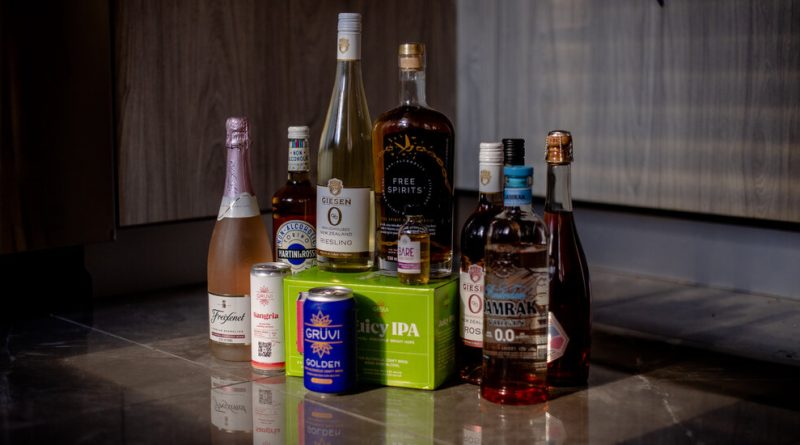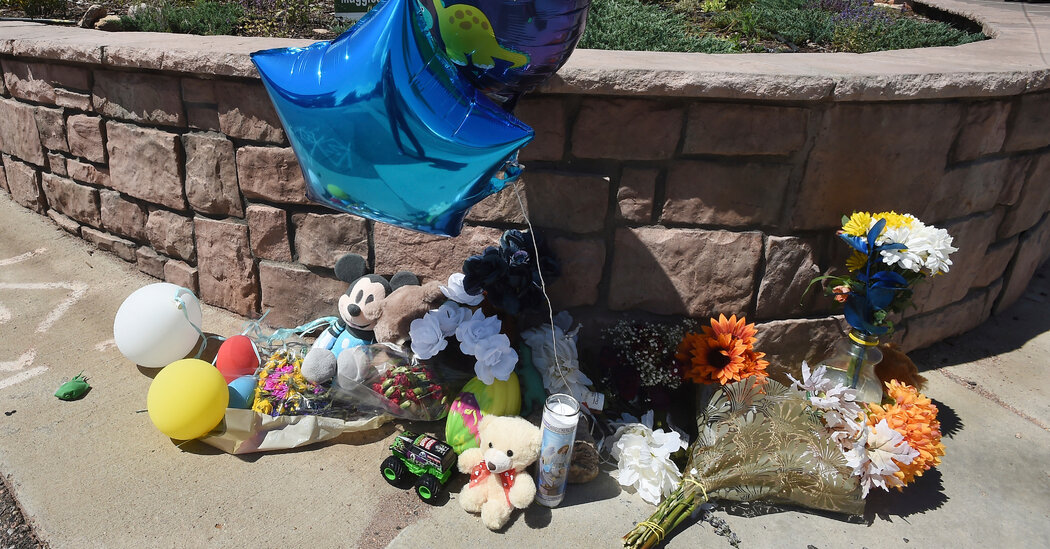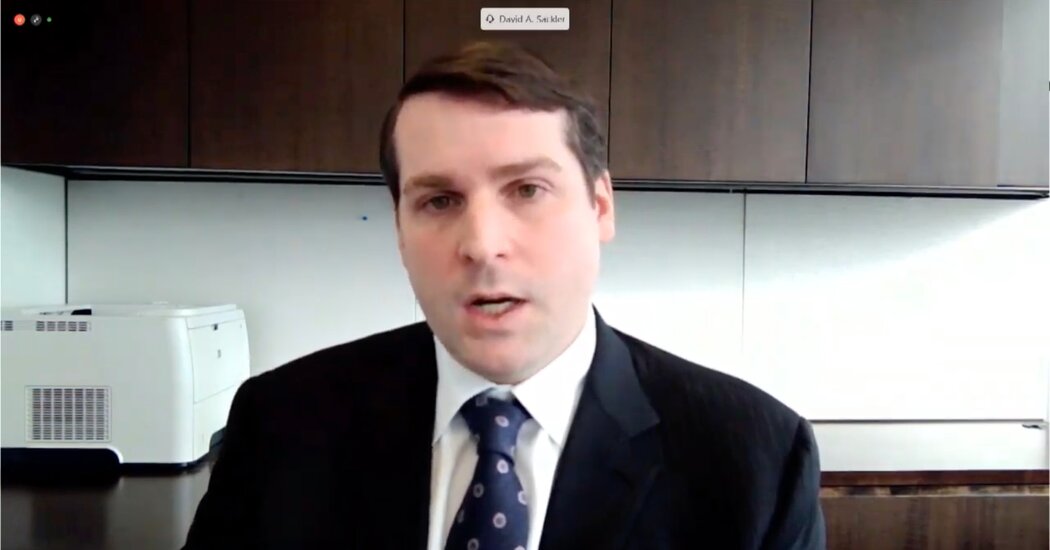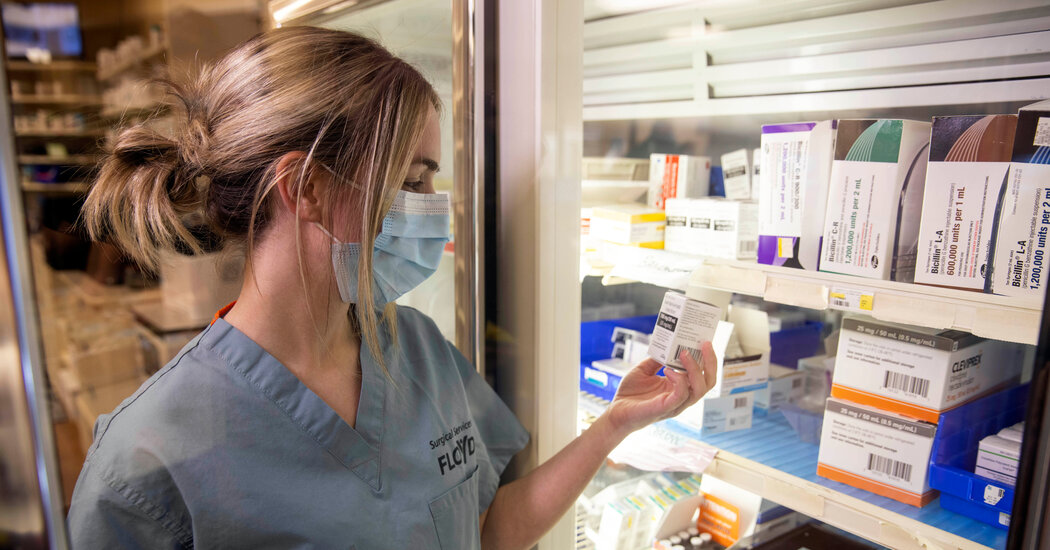Struggling With Dry January? You’re Not Alone.
Hilary Sheinbaum’s first Dry January started as a dare.
She was texting with a friend on New Year’s Eve several years ago when, she said, “tipsy me” proposed they both cut out alcohol, a huge part of both of their personal and professional lives, for a month.
She made it to the end of January. Her friend did not.
“He ended up losing, I won, and I’ve been doing it ever since,” said Ms. Sheinbaum, who is now on her seventh Dry January and has chronicled her efforts in a book, “The Dry Challenge.”
If you are the friend, and not Ms. Sheinbaum, in this scenario, you are not alone.
With the proliferation of nonalcoholic beer and spirits, an embrace of a “sober-curious” lifestyle by Gen Z and millennials and new research that shows any amount of alcohol is just plain bad for your health, Dry January is more popular than ever. But as with many New Year’s resolutions, failure often happens a couple of weeks in, a phenomenon that has been called Quitters’ Day.
“Don’t be surprised that it’s not getting a whole lot easier by mid-January,” said Wendy Wood, a psychology professor at the University of Southern California and the author of “Good Habits, Bad Habits.”
“It doesn’t mean that you have lost your resolve, that you’re not motivated to do this,” she said, adding that forming new habits, and dropping old ones, can take several months.
Dry January is good for you, even if you don’t make it all the way.
Quitting alcohol cold turkey can take a toll on your physical and mental health, especially if your daily habits include high consumption. Dry January is meant for social drinkers, not for people seeking recovery, experts say.
After seven Dry Januarys, Ms. Sheinbaum’s No. 1 rule is to be kind to yourself. If you slip up on occasion, “call it a Single-Drink January, a Damp January, and start over the next day,” she said. “You can still be successful.”
Even a short period of sobriety is good for your health, experts say.
“Most people have the very wrong idea that if you do a Dry January and you are not sober the entire time then you’re failure and need to go to rehab,” said Adi Jaffe, a mental health and addiction expert in Los Angeles. “The test that some people take on to see if they can stay sober for a month is worth it and interesting.”
Lisa Kugler, a psychologist and vice president of Shatterproof, a nonprofit recovery program, said Dry January can be a great opportunity for people who are reassessing their relationship with alcohol.
But she warned that Dry January can also “downplay” the relationship that someone with a substance abuse disorder may have with alcohol and make it “sound like it’s a choice versus a disease.”
“If they get 30 days that are alcohol free, that might make them think, ‘I don’t have a problem with alcohol’ when actually they may,” she said.
Old habits die hard for a reason.
Social drinking can be a routine for many people, and breaking that pattern is difficult. Blame it on your brain, Dr. Wood said.
“It’s really part of a memory system that your old habits will be activated — it’s how we can drive without thinking too much about what we’re doing,” she said. “It’s also how we persist with habits we may not want to perform. That is a normal consequence of habit memory: Be prepared that you’re going to have to persist at this effort for control for a little while longer.”
Once a habit is formed, Dr. Wood said, the response becomes automatic.
“Even if you’ve decided this is Dry January and you’re not going to drink anymore,” she said, “the habit is still in mind, and you have to actively inhibit or control it in order to keep with your resolution of a Dry January, and you have to do that every single time you would normally be drinking alcohol. Yes, it gets easier over time, but habit memory is very slow to decay.”
New habits can replace old habits.
Habits can take several months to change, Dr. Wood said, and she recommended two steps to make things easier.
First, change the context of your drinking habits. People attempt to “control themselves instead of working on the information that is activating the unwanted habit,” she said.
If going out to dinner will tempt you to drink, skip it. If there are people you tend to drink with, skip them. If you’re going to be tempted by having alcohol in your house, open or not, remove it altogether.
Second, substitute a behavior. That could mean swapping alcohol for juice or a nonalcoholic version of the drink, or plan activities that do not involve drinking.
Ms. Sheinbaum, the Dry January M.V.P., suggested taking point on organizing social plans with friends that are not alcohol-centric, such as a fitness class, bowling or a game night — something, she said, that “isn’t posting up at a bar.”
She also recommended recruiting a friend.
“There is strength in numbers,” she said. “You can cheer each other on, you can celebrate wins, you can vent to each other if you’re having a hard time with it.”
Plus, if you’re able to stick with Dry January, there’s a good chance you can keep it going in some form. Research has shown that people who take a month off from drinking continue to drink less in the weeks that follow. One study found that people who took part in Dry January were still drinking less in August.
Nonalcoholic alternatives can help you push through to the end.
For David J. Wallace, just because he’s not drinking alcohol this month doesn’t mean he can’t embellish a little. Mr. Wallace owns Dream House Lounge, a sober bar and wellness space in New Orleans. His favorite cocktail these days is called the lavender dream, a zero-proof mezcal-based cocktail.
“I prefer a more sophisticated sip, I want it to taste like an adult beverage and not a plain old juice,” he said. “I still love complex flavors like smoky, floral and citrus to give you some complexities.”
In New Orleans, “where there’s temptation everywhere,” a sober space like Dream House can help people “stick it out,” said Mr. Wallace, who has seen a steady flow of Dry January participants walk through the doors. The lounge offers zero-proof cocktails, botanical mixes and elixirs, an oxygen bar and bottle shop with alcohol-free spirits. But he also offers programming around mental and spiritual health.
“When you’re thinking about embarking on Dry January, it is thinking about wellness overall and wellness on a higher level,” Mr. Wallace said.
Mr. Wallace said he expects another surge of customers after Mardi Gras, during Lent.
Sahred From Source link Health



